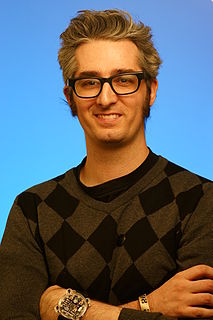A Quote by Bill Gates
Microsoft Research has a thing called the Sense Cam that, as you walk around, it's taking photos all the time. And the software will filter and find the ones that are interesting without having to think, 'Let's get out the camera and get that shot.' You just have that, and software helps you pick what you want.
Related Quotes
I'm not of the opinion that all software will be open source software. There is certain software that fits a niche that is only useful to a particular company or person: for example, the software immediately behind a web site's user interface. But the vast majority of software is actually pretty generic.
Making photos is helpful of course to master the craft. To get comfortable with the camera. Learn what a camera can do and how to use the camera successfully. Doing exercises for example if you try to find out things that the camera can do that the eye cannot do. So that you have a tool that will do what you need to be done. But then once you have mastered the craft the most important thing is to determine why you want to shoot pictures and what you want to shoot pictures of. That's where the thematic issue comes to life.
If you're into writing and making people laugh, or just want to video blog something, you should get a simple digital video camera. And all computers now come with an easy video editing software program. Just mess around with that for a little bit, try to figure it out, then just put stuff online and have fun. Never give up!



































